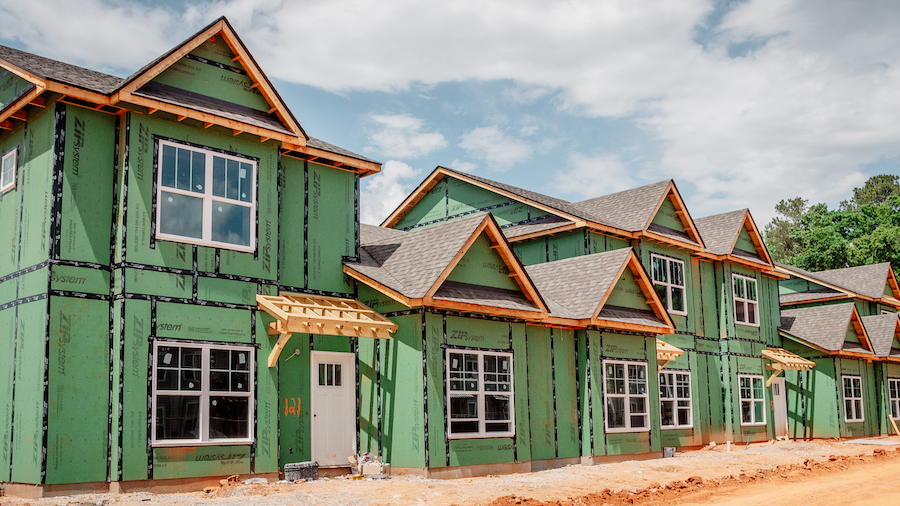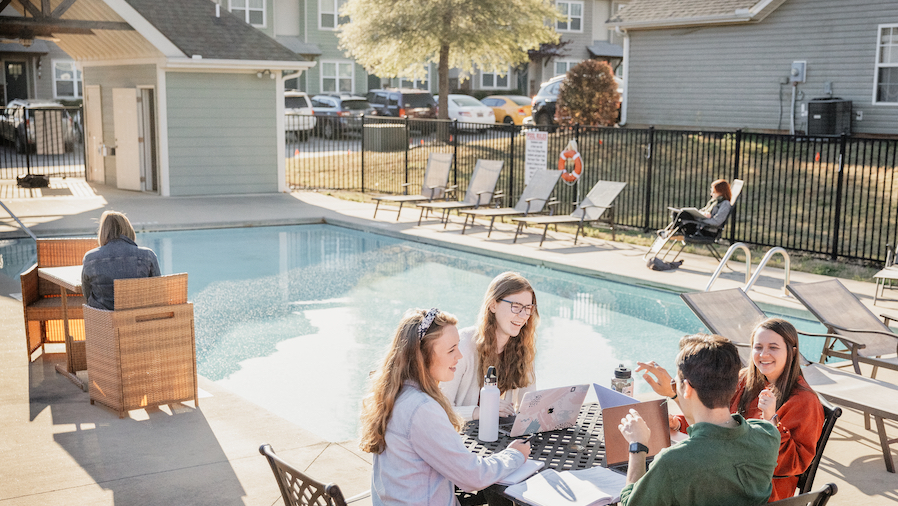To keep pace with an ever growing number of students, Anderson University is working to ensure that all who live on campus have the best possible living and learning experience.
During the 2021-22 academic year, 65 percent of Anderson University students were living in one of the 39 on-campus residence halls. Ninety percent of incoming freshmen were living on campus.
According to Jon Gropp, associate vice president of student development and dean of students, all returning students have signed up and selected their housing, so they’re now focusing on incoming students and giving them a better way to select their housing.
“New students are selecting their housing location on their own. They’ll get assigned a time, and, based on their date of deposit, will select their preferred space, as long as that’s available,” Gropp said. “We think that’s going to be a better experience for them, because they’ll have a say in where they get to go, with some caveats. Returning students have always been able to do that, but for incoming students, this is a new thing.”
As students move past their freshman and sophomore years, there are more choices for moving from more traditional housing into apartment-style living accommodations on or near the campus.
One of the most sought-after places to live has been College Parke, a cluster of townhouse-style apartments located just a half mile off campus. According to Charlie Dickerson, executive director of facilities and campus safety, Anderson University purchased College Park in June 2021.

This summer, the university is building 12 new townhouses, which will provide 96 new beds for students this fall. Dickerson noted that College Parke will have all of the amenities, including high speed Internet, microwave, refrigerator, stove, washer and dryer. Anderson University Campus Safety also routinely patrols the area and a swimming pool is available exclusively for College Parke residents.
This year, Gropp says, College Parke residents will feel they’re more a part of the overall Anderson University community.
“What will change this coming year is we will have a full residence life staff that will be there to support students and do some programming for students–-all of those things a student would get on campus,” Gropp said. “I think at a lot of universities you’re going to see that they’re going to stay those first two years or whatever’s required and then as soon as they get a chance, they’re going to move off. But I think if we provide those apartment areas that are appealing to them, they are more likely to stay and we can continue to have a greater influence on them through our community.”
A complete breakdown of Anderson University’s housing options, including photos, 360-degree views and floorplans, can be found online.

